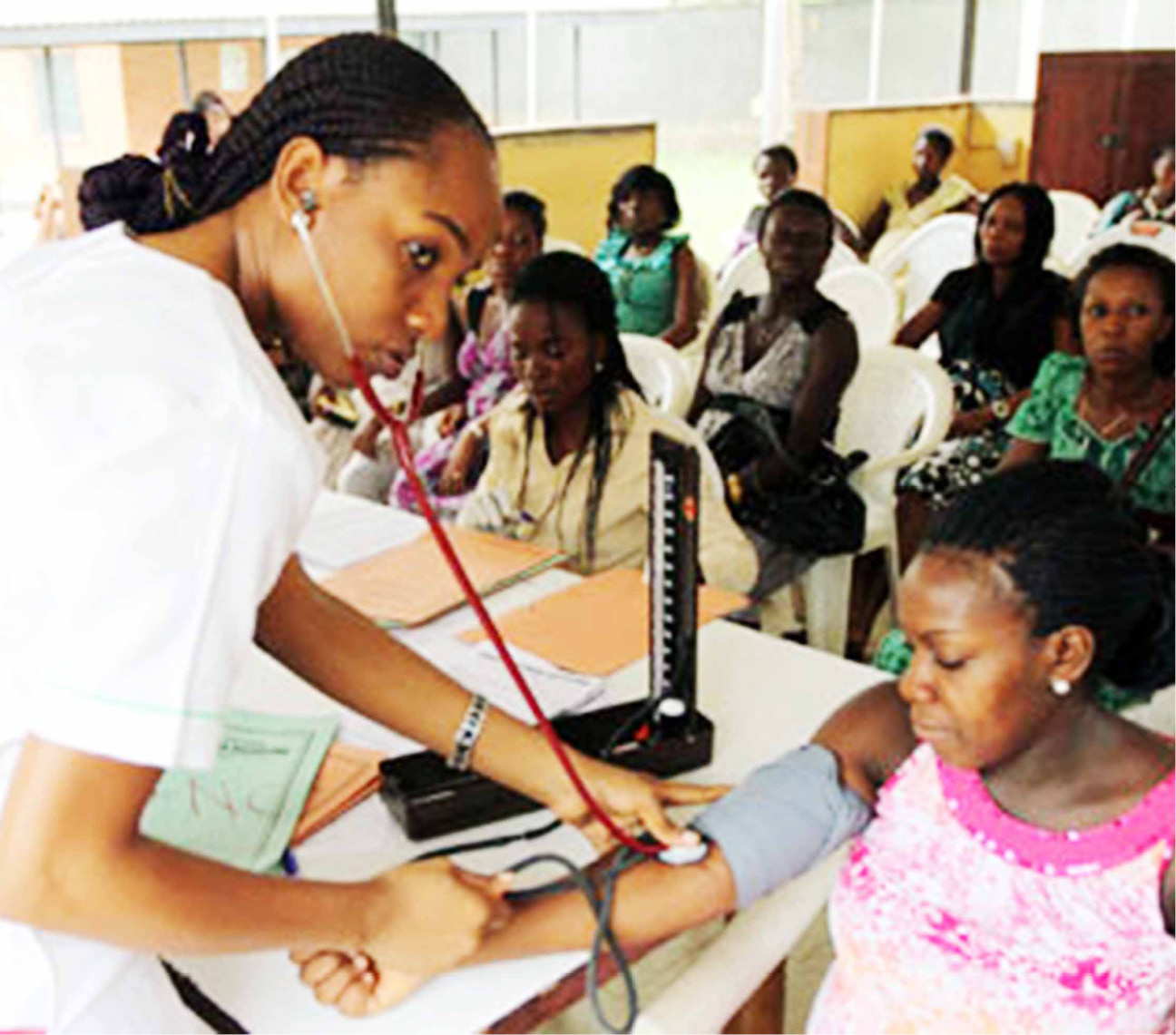Prioritize patient safety, WHO urges govts, others
The World Health Organisation (WHO) has urged governments of member countries and other stakeholders to prioritize and strengthen efforts for patient’s safety. WHO Regional Director for Africa, Dr Matshidiso Moeti made the call on Tuesday in a statement to mark the maiden edition of the World Patient Safety Day. The theme for the first World […]

A nurse attending a patient at ante natel clinic
The World Health Organisation (WHO) has urged governments of member countries and other stakeholders to prioritize and strengthen efforts for patient’s safety.
WHO Regional Director for Africa, Dr Matshidiso Moeti made the call on Tuesday in a statement to mark the maiden edition of the World Patient Safety Day.
The theme for the first World Patient Safety Day is: “Patient Safety: a global health priority.”
In the statement read by the Officer in charge of WHO Nigeria office ,
Dr Clement Lugala Peter, Moeti said patient safety is defined as the absence of preventable harm to a patient and reduction of risk of unnecessary harm associated with healthcare to an acceptable minimum.
She said available evidence suggested that 134 million adverse events occur annually in hospitals.
“I call on all stakeholders to make strong commitments, prioritize and take early action, and support the implementation of strategies for ensuring patient safety, managing risks and fostering supportive, learning cultures,” she said.
According to her, patient safety is an essential component of healthcare that should be given immediate attention.
Dr Moeti said there was an urgent need to raise awareness and understanding of patient safety.
“We must galvanize action towards safer systems, services, procedures, and practices in health care to eliminate harm to patients and to mitigate any risk of harm to patients,” she added.
The WHO regional boss said patient safety has been discussed by the member states during the Fifty-eighth Session of the WHO Regional Committee , adding that members of the committee stressed that strong health systems were necessary to address patient safety issues and the safety of health care workers.
She said some of the challenges in strengthening health systems to ensure patient safety in the region were: lack of national policies, strategies, standards, guidelines and tools on safe healthcare practices, and ineffective implementation where they exist, inadequate funding; and inadequate human resources for health, weak healthcare delivery systems with suboptimal infrastructure, poor management capacity and under-equipped health facilities , among others.
“The good news is that up to 80% of harm in these settings is preventable. For example, improving diagnosis, prescription and the use of medicines, responsible for most detrimental errors, would significantly reduce the risk of harm, ” she noted.
She said WHO was committed to supporting countries in determining the status of patient safety, development and implementation of national policies, guidelines and protocols for enhancing patient safety, as well as facilitating patient safety networks and partnerships.
“The WHO Regional Office for Africa recognizes and places high importance on patient safety to ensure that it has the rightful prominence within health care in the region,” she added.
